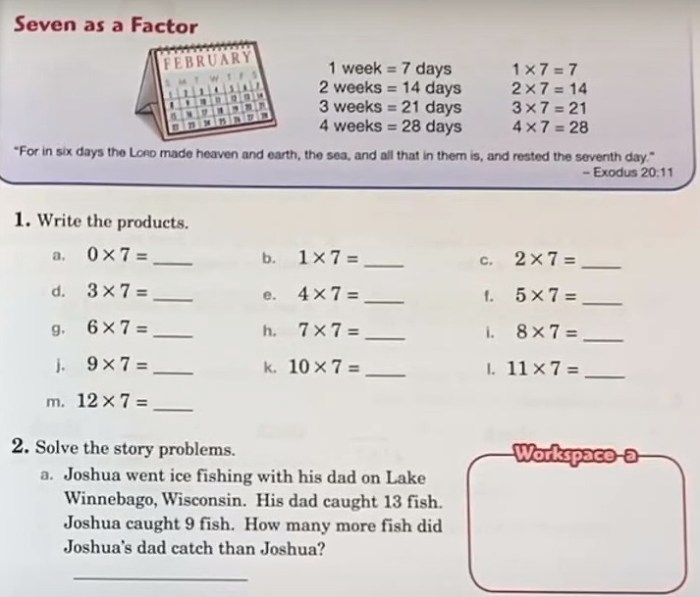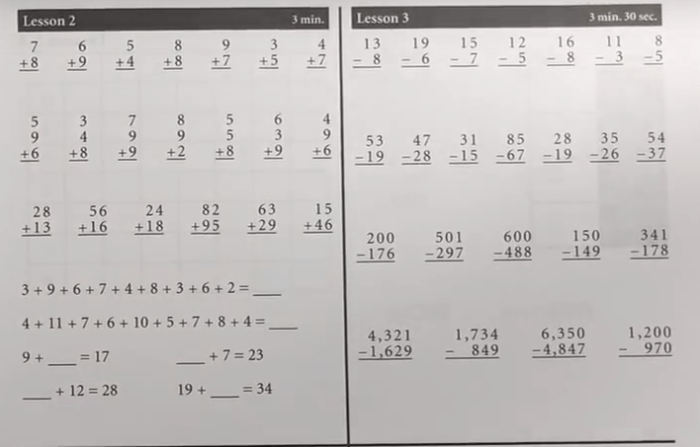Embark on a journey of financial literacy with Abeka Consumer Math Test 1, a comprehensive assessment designed to empower you with essential money management skills. This test delves into real-world financial scenarios, providing a solid foundation for making informed financial decisions.
Get ready to navigate the complexities of budgeting, credit, and investments, as we delve into the intricacies of Abeka Consumer Math Test 1.
Abeka Consumer Math Test 1 Overview

Abeka Consumer Math Test 1 is an assessment tool designed to evaluate students’ understanding of basic consumer math concepts. It covers a wide range of topics essential for making informed financial decisions in everyday life.
You’re probably here because you’re working on Abeka Consumer Math Test 1. If you need a break from all those numbers, check out From the House of Yemanja . It’s a beautiful story about a young woman’s journey of self-discovery.
When you’re ready to get back to math, you’ll be refreshed and ready to conquer that test!
The test consists of multiple-choice questions that assess students’ ability to solve real-world math problems related to budgeting, shopping, credit, and taxes. The test is typically timed, allowing students a limited amount of time to complete all questions.
Target Audience and Intended Use Cases
Abeka Consumer Math Test 1 is primarily intended for students in middle school or high school. It can be used as a diagnostic tool to identify areas where students need additional support or as a summative assessment to measure student progress in consumer math.
Test Content and Skills Assessed

Abeka Consumer Math Test 1 encompasses a wide range of fundamental concepts and topics in consumer mathematics, evaluating students’ knowledge and skills in various areas.
The test assesses students’ proficiency in:
Key Concepts and Topics
- Understanding the principles of budgeting and financial planning
- Calculating interest and finance charges on loans and credit cards
- Interpreting and analyzing financial data, such as bank statements and credit reports
- Making informed decisions regarding consumer purchases and services
- Applying mathematical concepts to solve real-world consumer-related problems
Skills Evaluated
- Numerical fluency and computation skills
- Problem-solving and critical thinking abilities
- Data analysis and interpretation skills
- Financial literacy and money management skills
- Decision-making skills in consumer contexts
Question Types
The test employs a variety of question types to assess these skills, including:
- Multiple-choice questions
- True/false questions
- Short answer questions
- Word problems requiring mathematical calculations and analysis
- Scenario-based questions that simulate real-world consumer situations
Test Preparation Strategies

Adequately preparing for the Abeka Consumer Math Test 1 is essential for success. By adopting effective study strategies, you can enhance your understanding of the test content and improve your performance.
To begin, thoroughly review the test content Artikeld in the previous section. Identify areas where you need additional support and focus your studies accordingly.
Practice Problem-Solving, Abeka consumer math test 1
Practice solving problems to strengthen your understanding of the concepts covered in the test. Utilize textbooks, online resources, or practice tests to access a variety of problem types.
- Start with basic problems to build a solid foundation.
- Gradually increase the difficulty level to challenge yourself.
- Seek assistance from teachers, tutors, or online forums if needed.
Time Management
Time management is crucial during the test. Allocate your time wisely to ensure you complete all sections effectively.
- Estimate the time you need for each section based on its difficulty.
- Prioritize completing the easier sections first.
- Use a timer or watch to keep track of your progress.
Study Resources
Utilize various study resources to enhance your preparation.
- Textbooks provide a comprehensive overview of the test content.
- Online materials offer interactive simulations, videos, and practice questions.
- Practice tests help you familiarize yourself with the test format and time constraints.
Scoring and Interpretation

The Abeka Consumer Math Test 1 is scored based on the number of correct answers. Each question is worth one point, and the total score is the sum of all the correct answers.
The test results are interpreted based on the following score ranges:
- 90-100%:Indicates a strong understanding of the concepts covered in the test.
- 80-89%:Indicates a good understanding of the concepts, but some areas may need improvement.
- 70-79%:Indicates a fair understanding of the concepts, but significant improvement is needed.
- Below 70%:Indicates a weak understanding of the concepts and substantial improvement is required.
The test results can be used for educational purposes to identify areas where students need additional support. The results can also be used to track student progress over time and to evaluate the effectiveness of teaching methods.
FAQ Section: Abeka Consumer Math Test 1
What is the purpose of Abeka Consumer Math Test 1?
Abeka Consumer Math Test 1 assesses your understanding of key financial concepts and skills, empowering you to make informed financial decisions.
How should I prepare for Abeka Consumer Math Test 1?
Review test content, practice problem-solving, and utilize study resources to enhance your knowledge and skills.
How is Abeka Consumer Math Test 1 scored?
The test is scored based on your performance, with different score ranges indicating your level of proficiency.